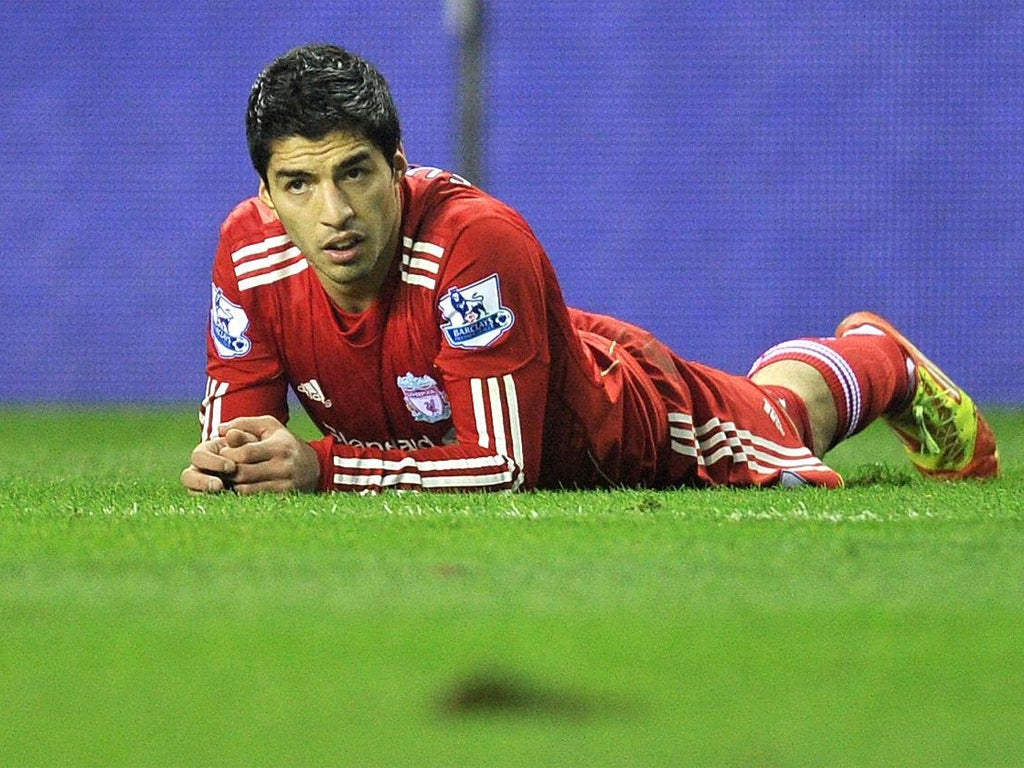James Lawton: Liverpool do not retreat with honour but self-serving scorn
They continue their resistance to the verdict in all but the resolve to fight it

Your support helps us to tell the story
From reproductive rights to climate change to Big Tech, The Independent is on the ground when the story is developing. Whether it's investigating the financials of Elon Musk's pro-Trump PAC or producing our latest documentary, 'The A Word', which shines a light on the American women fighting for reproductive rights, we know how important it is to parse out the facts from the messaging.
At such a critical moment in US history, we need reporters on the ground. Your donation allows us to keep sending journalists to speak to both sides of the story.
The Independent is trusted by Americans across the entire political spectrum. And unlike many other quality news outlets, we choose not to lock Americans out of our reporting and analysis with paywalls. We believe quality journalism should be available to everyone, paid for by those who can afford it.
Your support makes all the difference.It would have been infinitely more honourable if Liverpool had said to hell with the Football Association and their version of justice and appealed the Suarez verdict.
Wrong-headed perhaps, more subjective, you have to believe than anything handed-down by the independent regulatory panel obliged to attempt to draw a line against racial abuse on a football pitch, but still a course of action consistent with all that one of the nation's most prestigious football clubs had done and said since the affair erupted last October.
Instead, Liverpool continue their resistance to the verdict in all but the resolve to fight it, expose it and emerge, win or lose, with the reputation of an organisation determined to fight for what they believe to be right. As it is, they refuse to join in the widespread desire for some rough agreement that Suarez – without being convicted as a racist – did indeed use references to his opponent's skin colour not affectionately but as the means of provocation in a taut situation.
They do not merely express reservations about the FA's process of justice. They say that far from attempting honestly to resolve a difficult situation, the game's ruling authority has set a sickening precedent for the most unscrupulous behaviour between rival clubs in the future.
"This case," they charge, "has also provided a template in which a club's rival can bring about a significant ban for a top player without anything beyond an accusation."
We could not get much further from the line in the sand with this desert storm of rebuttal of the confirmed fact that Suarez made multiple references to Patrice Evra's race and that his evidence was deemed inconsistent by a panel headed by a Queen's Counsel and including a hugely respected professional football man without connections to any of the opposing parties.
Liverpool submitted to the process, marshalled their case and lost.
Now they scorn the court, such as it was, and by their action suggest that they believe the governance of the national game is worthy of such little respect that rather than fight against it to the limits of their means, they will retreat even further into their belief that it was not Evra who was the victim but Suarez and the interests of his club.
Liverpool's assertion that the FA has "damaged the reputation of one of the Premier League's best players" is undeniable, of course, but then you might say the same of the Dutch FA which gave him a lengthy ban after finding him guilty of biting into the shoulder of one of his opponents while playing for Ajax. The cases are unrelated in all but the possibility that Suarez made another decision to behave in a way that ultimately could not be accepted.
Much of Suarez's defence was based on the argument that he was behaving in a way which in his native South America would not have been deemed either hostile or offensive. That aspect of the case was thoroughly debated and investigated and found, when it was placed in the context of an English football match, to be unsupportable. The panel's 115-page report was – outside of something submitted to the Appeal Court or the House of Lords – a document that convinced most unattached observers that both arguments – and a considerable amount of visual evidence – had been scrupulously weighed. Liverpool plainly do not agree and yet they choose not to submit fresh arguments to the appeal procedure. Many will see this is as a statement that hardly resounds with conviction.
What seems much more apparent is the reluctance of an organisation to accept that their strongest instincts have been exposed as deeply self-serving. The opportunity was for a little grace and the concession that in a difficult,and often hate-filled world, perfect solutions are not always available. That chance was blown, along with any suggestion of the courage that comes with the truest conviction.
Join our commenting forum
Join thought-provoking conversations, follow other Independent readers and see their replies
Comments